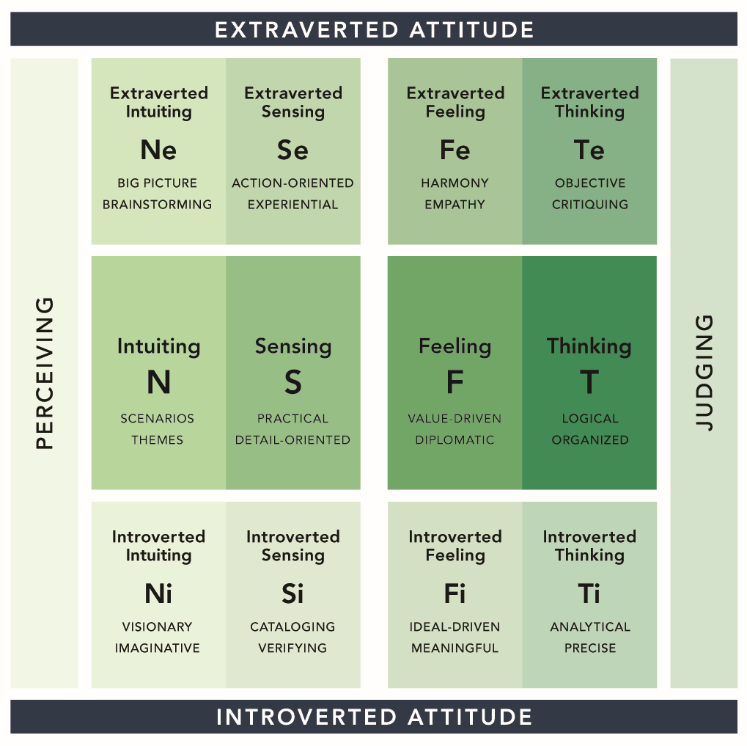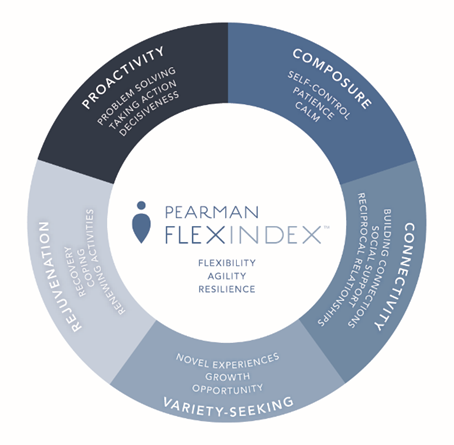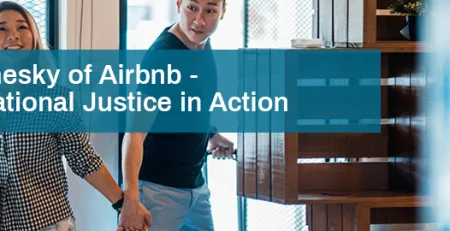How Your Flexibility To Adapt Is The Real Key To Success At Work
If you’ve ever been asked if you’re more of a detail-oriented or a big picture person, chances are your response was something along the lines of “…it depends on the situation I’m in.” There is no room for nuance with a more traditional understanding of personality. You might get told that you are an extrovert because you’ve had to become comfortable leading meetings, but in reality, you don’t like to make small talk with strangers at parties and prefer to work alone.
Some personality-type instruments try to put us in a box so that we think we are either this or that. These classifications may suit certain employers who want to process and categorize their workers in the same way as inventory, but the reality is people exhibit different behaviors in different situations. The conduct of an employee varies in relation to whom they are interacting with and across different situations. Whether you’re perceived as a “go-getter” or “an efficient introvert,” your identified personality doesn’t necessarily determine your output at work.
Why personality-based labels aren’t a great indicator of success
Labels and categories can make our understanding of personality easier to digest, but these labels are also liable to encourage superficial views of others, limiting people to predefined boxes rather than viewing them as unique individuals with distinctive needs and perspectives. As Carl Jung once said, “…it is not the purpose of a psychological typology to classify human beings into categories; this in itself would be pretty pointless.”
Labels diminish the realization that we all have growth potential. Although many personality assessments have stressed, there is no such thing as a “good” or “bad” personality type, identifying those who are, for instance, ENTJs as “quick-witted successful natural leaders” could cause aspiring non-ENTJs to blame their personality type in the face of failure. They may give in to the resignation that this is “just who they are,” and there’s no further room for development.
Success comes from the demonstration of unique traits in response to your environment
People can change, grow, and become empowered once they recognize that personality type is a continuum rather than a black and white concept. Success is not inherent in one’s type; it can be achieved by a person’s proper demonstration of their unique traits in response to others and the environment they share. The more flexible we are in using different aspects of our personality, the more we can learn from experience and adapt to our surroundings.
Being effective in responding to the demands of everyday life means using our natural strengths and being able to call on other, less natural, resources as needed. We need to be able to be flexible in the way we perceive and respond to our environment.
If our ability to flex is limited, we may struggle to respond appropriately to the demands we face. The more flexibility we have, the easier we can respond to our environment successfully. For example, if you focus too much on details but a situation calls for you to consider how a decision may impact the next five years, you may end up missing the big picture.
Going deeper: Understanding your personality in natural state and within your everyday environment
The Pearman Personality Integrator® focuses on accessing all of your psychological resources based on situational demands. The Pearman has over 1,000,000 unique personality type profiles, setting a new standard for assessing personality. With an innovative assessment experience coupled with a deeper look into the individuality of personality type, the Pearman provides a measure of personality in one’s natural state (i.e., what is most comfortable) and in one’s everyday environment (i.e., what is most often demonstrated). It also explores any disconnects you may have by providing insight into your level of flexibility, agility, and resiliency.
The Pearman encourages you to move beyond a type pattern and gain greater use of all your psychological resources. This assessment represents personality along a continuum and does away with the need to choose one personality type over another. Respondents have reported that the results are more representative of their personalities overall. The Pearman uncovers behaviors that are most natural (comfortable) and those that are required or demonstrated in a person’s everyday environment. An essential feature of the Pearman is the FlexIndex. To be successful, we must learn how to adapt to change and be resilient to setbacks. The FlexIndex measures how well a person can leverage their psychological resources to operate at peak capacity. Specifically, it looks at oneʼs competency with: Proactivity (taking action); Composure (remaining calm); Connectivity (connecting with others); Variety-Seeking (seeking out new experiences); and Rejuvenation (coping with increasing pressure). The relationship between the FlexIndex and how easily a person can move among functions makes the Pearman well suited for talent development initiatives.
The Pearman Personality Integrator can be combined with the EQi 2.0®, EQ 360®, and other assessments. It is ideally suited for use in:
- Leadership Development
- Coaching/Mentoring
- Succession Planning/High-Potential Development
- Increasing Self-Awareness
- Improving Communication
- Higher Education
Personality type is a dynamic system of interacting components, and through Pearman, we have a more practical and useable psychological type tool. If you’re curious to learn more about this assessment and how to integrate it into your talent development initiatives, click here to learn more.












